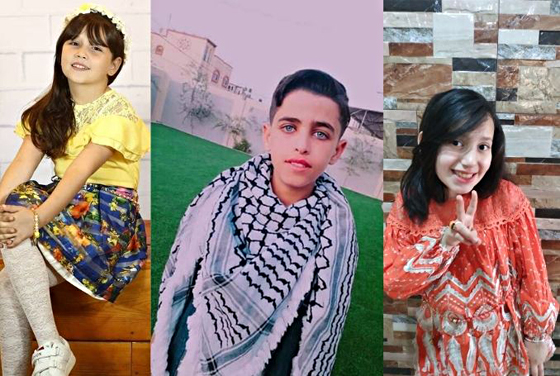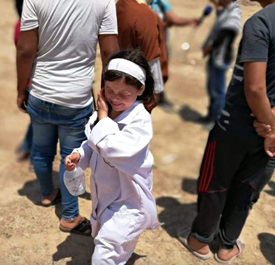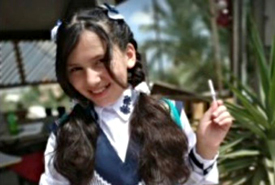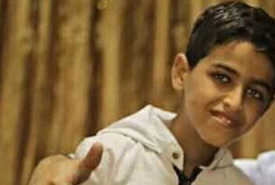The inevitable has finally happened, and the coronavirus pandemic is now ravaging the besieged Gaza Strip. On August 24, a total lockdown was imposed by the Gaza authorities following the discovery of several COVID-19 cases outside designated quarantine areas. Since then, over 1,000 cases have been identified and ten people have died. Experts estimate the number to be significantly higher.
Businesses, mosques, schools, cafes and virtually everything else is now under lockdown. The local government, alongside the UN Palestinian refugee agency, UNRWA, and together with many volunteers, are desperately working to keep Gaza functioning and to limit the spread of the pandemic, despite limited and ever-shrinking resources.
Gaza’s crisis is multifaceted. The Israeli siege, combined with the massive destruction from the previous war, has left Gaza in the throes of a major humanitarian disaster. With electricity outages reaching up to twenty hours per day and with fuel supplies running low, Gaza was barely functioning, to begin with.
COVID-19 has exacerbated an already dire situation.
While, often, the voices of adults – whether officials, international workers, intellectuals, and even ordinary people – get heard, the children’s voices often are neglected. The children of Gaza have been the main victims of the Strip’s many adversities in recent years. Falling victim to the ravages of wars and, being the most vulnerable, to malnutrition and health crises, Gaza’s children are truly suffering. Their cries for help, however, are often muted or unheard.

To give a platform, however limited, to the voices of some of Gaza’s most defenseless, we reached out to several families in Gaza, seeking permission for their children to reflect, in their own way, on the current lockdown, their lives under siege and the seemingly perpetual war. We also asked the children to talk about their hobbies and their hopes and dreams for the future.
This is what they had to say.

Malak Judah, 9 – Gaza City
My name is Malak Judah. I am nine years old. I live in the city of Gaza. I began my hobby of singing and reciting poetry at the age of three. I have many video clips in which I sing and recite poetry. All the poetry that I write and recite speaks of Palestine only, and our longing to go back to our homeland.
I joined the Great March of Return from the very start (March 2018). I used to go there with my family to recite poetry and sing while standing on the main podium, only 700 meters (approx. 2,300 feet) from the fence that separates Gaza and our occupied towns in Palestine. But every time we did this, the Zionist occupation forces would fire live bullets and teargas at us. I inhaled teargas many times and, every time I did, I would almost suffocate.
I have tried to sing about other subjects aside from Palestine but I cannot because, since I came to this earth, all that I see and hear is related to the occupation policies and the oppression of our people … They keep cutting off the electricity and our water is unfit for human consumption – and, even then, it is not always available. Every few years, there is a new Zionist aggression on Gaza. This is why my poetry is always about the difficult life that we are living through.
I dream of traveling and participating in international festivals, but because of the closure policies and the hardship of leaving, I have never been outside Gaza. Now the situation is even more critical, especially after the spread of the COVID-19 pandemic. I miss my school, my teachers and the morning announcements. We have no idea when we will go back to school. It feels as if we are living through another Israeli war on Gaza.
My wish is for Palestine to be liberated so that we can go to our hometown.

Razan Zidan, 9 – Khan Younis
My name is Razan Zidan. I am nine years old. I dream of being a fashion designer so that I can design beautiful clothes for my family and all the children of Palestine to wear. When I grow up, I want to give them gifts and beautiful toys, to bring happiness to their hearts.
I have many fears. I hate the coronavirus. Because of it, I cannot see my friends. I miss playing with them and I miss my school, too. I am also afraid of wars. They scare me very, very much. I hate the sound made by warplanes and the sound of shelling. I am afraid of watching the news. When there is an electric outage, I go to sleep immediately so I am not very scared of the dark.
But I also love many things. I love to draw and I love colors. I love roses and beautiful clothes and I love to spend time with my family.
I love Palestine very much. It is my homeland. But the occupation is vile. My father keeps saying that "the world will be beautiful when the occupation is gone". And that is all I want. For the world to be beautiful.
My grandfather has told me that we lived in a beautiful town called Bashsheet. It is our original town and it is located by the sea. I asked him why it was given that strange name. He said because Prophet Sheet was buried there. He said that it is a wonderful and beautiful town and famous for its very delicious oranges. I want to see my town and how beautiful it is. I wish to be able to go back with my family to Bashsheet.
I hope that, one day, my dream – and the dream of all of my friends – comes true, where Palestine exists without Israeli occupation.

Musa Abu Jazar, 12 – Rafah
My name is Musa Salah Abu Jazar. I am twelve years old. I live in the city of Rafah. I am a refugee and my original village is Sarafand Al-Amar. I was born mute – I cannot talk and I cannot hear. When I was little, my mother took sign language courses so she can communicate with me.
I suffer very much because most people in my society do not understand me as they do not know sign language. I call on all people to learn sign language so that they can understand me and understand all mute people, everywhere.
Despite my hearing disability, I always try to overcome all the obstacles I face. At school, I am always the top student in the class and I get the highest grades. I go to school on my bike, several kilometers each way. My hobbies are playing football, riding my bike and photography. I play football with the neighborhood kids. A few months ago, I joined a football academy so that I could improve my skills, but when the coronavirus stopped everything in Gaza and the whole world, it became very difficult for me to practice. I cannot go to my school any more or even ride my bike.
In Gaza, we have two enemies: the coronavirus and the Israeli occupation. The occupation is preventing us from enjoying any of our basic rights and our hobbies. The thing that scares me the most is when electricity is out for many hours. I dream of becoming a famous professional football player. I also want to become a very good photographer. I wish to have a good camera so that I can record my struggle and the suffering of all of the Gaza children, so the whole world may know that we have been deprived of all of our rights.
Wafaa Aludaini is a Gaza-based journalist, a broadcaster and an activist. She heads the 16th October Youth Group and is dedicated to conveying the voices of ordinary Palestinians in Gaza to the world. Ramzy Baroud is a journalist and the Editor of The Palestine Chronicle. He is the author of five books. His latest is These Chains Will Be Broken: Palestinian Stories of Struggle and Defiance in Israeli Prisons (Clarity Press, Atlanta). Dr. Baroud is a Non-resident Senior Research Fellow at the Center for Islam and Global Affairs (CIGA), Istanbul Zaim University. His website is www.ramzybaroud.net




One thought on “We Are the Children of Gaza: The Poet, the Fashionista and the Footballer”
Comments are closed.